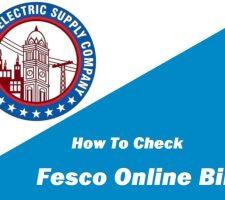
Going off-grid is an exhilarating idea. Who doesn’t love the idea of complete energy independence? But, like anything new, there are bound to be challenges. I’ve seen countless folks jump into this headfirst only to trip over the most common pitfalls. Luckily for you, with a bit of knowledge (and some helpful resources), you can sidestep these issues. Here’s what you need to know:
1. Not Researching Enough Before Starting
While the notion of living off the grid is appealing, it’s not something you just wake up and do. It requires proper research. I recently stumbled upon Electricity Freedom System – a fantastic guide on how to achieve energy independence. It’s packed with blueprints, material lists, and even audiovisual guides on how to create your own home power plant. Before diving into any project, arm yourself with solid information.
2. Underestimating Energy Consumption
Most people don’t realize how much energy they consume until they attempt to go off the grid. To prevent this, track your monthly consumption. This will help in deciding the size and capacity of the power system you’ll need. Also, consider reading about 8 practical ways to reduce your electric bills. It’s a great start to understanding how to efficiently manage and reduce consumption.
3. Overlooking Maintenance
Going off-grid isn’t a one-time set-up and forget venture. Your equipment, whether it’s solar panels, wind turbines, or bio-generators, needs regular maintenance. Just like how it’s crucial to detect and prevent septic tank problems to ensure a smooth-running home, maintaining your off-grid system is crucial for its efficiency and longevity.
4. Forgetting About Energy Storage
Remember, the sun doesn’t shine all day, and the wind doesn’t blow all the time. You need an energy storage system, like batteries, to store excess power for lean times. The efficiency of these batteries determines how well you’ll fare when nature isn’t on your side.
5. Overlooking Local Regulations
While the dream of living off-grid might be universal, the laws around it aren’t. Some places might have restrictions on collecting rainwater or erecting wind turbines. It’s always best to check local regulations.
6. Ignoring Backup Solutions
Lastly, always have a backup! Even with the best-laid plans, things can go awry. Whether it’s a technical hitch or nature playing spoilsport, a backup system ensures you’re not left in the lurch.
Going off the grid is no small feat. But with the right resources, information, and mindset, it’s entirely within reach. Remember, knowledge is power (literally, in this case). Prepare, plan, and then take the plunge. Safe travels on your off-grid journey!
The Environmental Impact of Going Off-Grid
As we move towards more sustainable living, it’s essential to consider the environmental footprint of our choices. Going off-grid, undoubtedly, has a smaller carbon footprint than conventional living. Relying on renewable energy sources like wind, solar, and water reduces the greenhouse gases typically associated with traditional energy sources. Moreover, off-grid living often encourages a minimalist lifestyle, reducing consumerism and its subsequent waste. Thus, this path is not just beneficial for you but also for Mother Earth.
Embracing a Different Lifestyle
One of the most enriching aspects of off-grid living is the lifestyle change. Going off-grid means embracing a more intimate connection with nature, understanding its rhythms and patterns. You’re no longer a passive consumer of electricity but an active participant in its generation. This switch instills a sense of responsibility and mindfulness. Moreover, this lifestyle often emphasizes community and collaboration. Whether it’s sharing resources, knowledge, or simply bonding over shared experiences, off-grid living fosters stronger human connections.
The Financial Benefits Over Time
There’s no denying that the initial investment in off-grid systems can be steep. From procuring solar panels to setting up a water collection system, the costs can add up. However, consider it a long-term investment. Over time, the recurring expenses linked with conventional living, such as electricity bills, water charges, and other utilities, reduce to a minimum or disappear. Within a few years, the savings you make will surpass the initial investment, rendering your living virtually cost-free. Moreover, with advancements in renewable technology and increased demand, the prices of off-grid systems are becoming more affordable.


